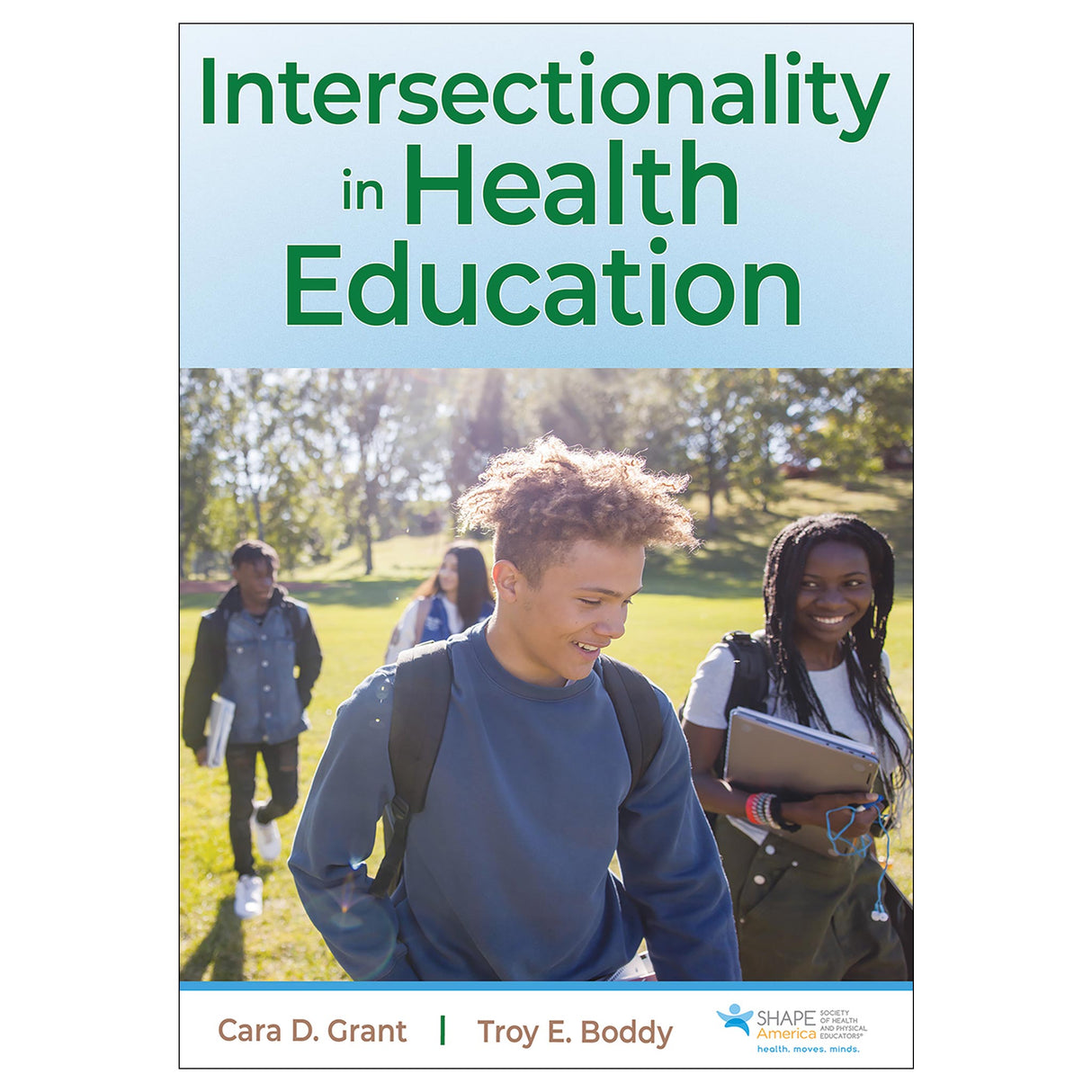Intersectionality in Health Education
Author: Cara D. Grant, Troy E. Boddy
$49.00 USD
Intersectionality in Health Education seeks to prompt meaningful reflection on the current status of health education and to ultimately result in more equitable practices for all students. It will help health educators identify their implicit biases, examine how intersectionality is affecting Black students, and build classrooms where all students are seen and valued.
Through a collection of 10 case studies, Intersectionality in Health Education offers insights into the issues that students who identify as “Black and . . .” commonly face. The text, geared to health education teacher education (HETE) students as well as in-service teachers, does the following:
- Illuminates culturally aware teaching strategies that affirm the worth of “Black and . . .” students
- Amplifies crucial issues that negatively affect students with intersectional identities
- Addresses intentional or unconscious biases that harm Black youths, thus broadening the book’s value beyond the sharing of teaching strategies
- Self-awareness and social awareness in a predominantly white school environment
- Classroom climate and culturally responsive teaching
- The dilemma of Black health care access, socioecological factors, and social determinants of health
- Health education spaces created with Black and Brown girls in mind
- Perceptions, identity, and opportunities for Black males
Intersectionality in Health Education will help preservice and in-service teachers adopt teaching practices that create a supportive, empathetic, and nurturing environment. In doing so, they can help validate “Black and . . .” students’ self-worth and swing the pendulum toward a more equitable experience in health education for all students.
Human Kinetics is proud to publish this book in association with SHAPE America, the national organization that defines excellence for school-based health and physical education professionals across the United States.
Audience
K-12 health education teachers, staff, and district-level health coordinators. Supplemental resource for both undergraduate- and graduate-level health education teacher education (HETE) courses.The dilemma of Black health care access, socioecological factors, and social determinants of health
Cara D. Grant
Case Study 2: “Don’t You All Do That?”
The stories we tell ourselves about others
Patricia Morgan
Case Study 3: How I Show Up: Black and Excellent
Self-awareness and social awareness in a predominantly white environment
Troy E. Boddy
Case Study 4: “Follow the Rules or Get Out of My Class”
Examining classroom climate and culturally responsive teaching
Brendan Joseph Tassy
Case Study 5: Black Joy
Moving away from a deficit narrative about Black girls
Deanna Toler Kuhney
Case Study 6: Learning From Landi
Intentionally creating health and physical education spaces with Black and Brown girls in mind
Porsche Vanderhorst
Case Study 7: The Danger of a Single Narrative
Perceptions, identity, and opportunities for Black males
Daryl C. Howard
Case Study 8: “What’s Your Pronoun?”
Navigating sexuality, gender expression, and LGBTQ+ community in health education
Tiffany Monique Quash
Case Study 9: “Pull Yourself Up by Your Bootstraps”
Understanding the cycle of poverty
Anika Thrower
Case Study 10: “It’s Time to Eat!”
Considering food justice and food equity
Victor Ramsey
Conclusion
Learn about intersectionality in health education
The challenges faced by People of Color in health spaces
Human Kinetics is pleased to partner with SHAPE America by offering discounts on our resources to SHAPE America members! Whether you’re a preK-12 teacher, higher education faculty member, researcher, administrator, or future professional, we’re here to help you in your professional career and personal fitness journey of improved fitness, stronger athletic performance, and better nutrition.
SHAPE America members receive a 30% discount on this resource and other eligible resources through the member portal at SHAPE America. Learn more about SHAPE America membership at SHAPEAmerica.org or direct your questions about the discount to askmembership@shapeamerica.org.





